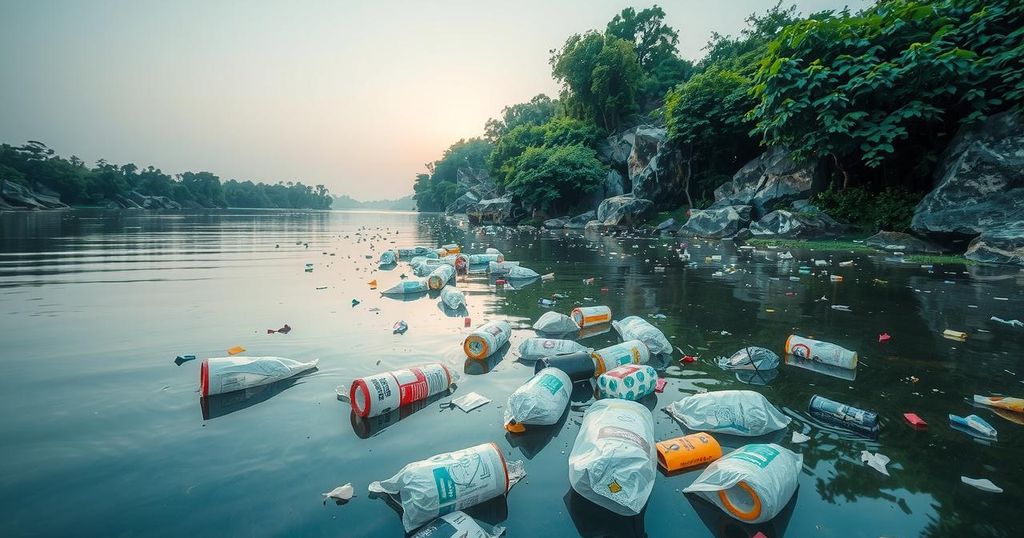Zimbabwe’s Ongoing Struggle Against Illegal Chinese Plastics
Zimbabwe faces a significant environmental crisis due to illegal plastic imports from China. Vendors in Harare sell substandard plastic bags that do not meet legal requirements, contributing to pollution. Efforts to enforce regulations are undermined by corruption and lack of accountability in the manufacturing sector, highlighting the urgent need for stronger measures to combat this growing issue.
Zimbabwe confronts a severe environmental crisis resulting from an influx of illegal plastic bags originating from China. At Mbare marketplace in Harare, vendors openly sell these substandard bags, which fail to meet the country’s legal thickness requirements. Despite awareness of the regulations, vendors like Tichaona continue to sell the cheaper products due to overwhelming consumer demand.
Many consumers remain unaware that the plastic bags they purchase are thinner than the legally mandated 30 microns, as admitted by an employee at a Chinese plastic manufacturing firm. The lax enforcement of laws facilitates the proliferation of these subpar products, exacerbating the nation’s pollution crisis.
Sampling analysis by Global Press Journal confirmed that many plastic bags, including those sold at Mbare marketplace, measure well below the legal thickness, with some as thin as 6 microns. Such thin plastics contribute significantly to pollution, as they can take thousands of years to decompose and ultimately harm wildlife and humans through microplastics.
The management at Colour Maximal acknowledges their production of cheap plastic bags, simply stating, “We’re profit-oriented. It’s all about saving materials and keeping prices competitive.” This mindset prevails among many manufacturers who prioritize profit over environmental responsibility, intensifying the waste problem.
Approximately 18% of Zimbabwe’s waste is improperly disposed of, blocking waterways and leading to ecological disasters. Environmental agencies claim to enforce regulations, yet reports indicate that many companies, such as Colour Maximal, evade inspections, thereby continuing to produce illegal plastic bags without repercussions.
As local manufacturers and importers from China dominate the market, the lack of traceability makes it difficult to hold offending companies accountable. None of the examined plastic bags carried any manufacturer’s name, indicating an intentional effort to avoid detection.
Despite a 20% tax imposed on plastic bags to deter usage, enforcement remains weak. Companies frequently circumvent such regulations, which reflects a broader trend of neglecting environmental laws linked to foreign investments, particularly from China, underscoring a deeper concern of neo-colonial influence.
Zimbabwe’s battle against illegal Chinese plastic imports underscores a significant environmental crisis fueled by corruption and inadequate enforcement of regulations. The overwhelming presence of substandard plastic products, exacerbated by profit-oriented manufacturing, creates severe ecological consequences. This ongoing struggle reveals the complexity of foreign investment dynamics and the regulatory challenges faced by the nation, calling for urgent intervention and stricter enforcement to protect the environment.
Original Source: globalpressjournal.com




Post Comment